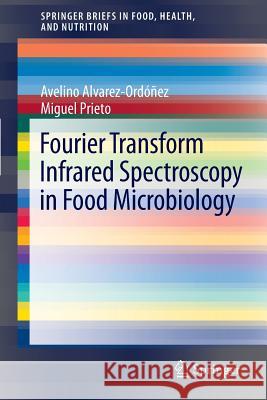Fourier Transform Infrared Spectroscopy in Food Microbiology » książka
Fourier Transform Infrared Spectroscopy in Food Microbiology
ISBN-13: 9781461438120 / Angielski / Miękka / 2012 / 55 str.
Vibrational spectroscopy techniques, which have traditionally been used to provide non-destructive, rapid, and relevant information on microbial systematics, are useful for classification and identification. In conjunction with advanced chemometrics, infrared spectroscopy enables the biochemical signatures from microbiological structures to be extracted and analysed. In addition, a number of recent studies have shown that Fourier Transform Infrared (FT-IR) spectroscopy can help to understand the molecular basis of events, such as the adaptive tolerance responses expressed by bacteria when exposed to stress conditions in the environment, i.e. environments that cells confront in food and during food processing. The proposed Brief will discuss the published experimental techniques, data-processing algorithms, and approaches used in FT-IR spectroscopy to assist in the characterization and identification of microorganisms, to assess the mechanisms of bacterial inactivation by food processing technologies and antimicrobial compounds, to monitor the spore and membrane properties of foodborne pathogens in changing environments, to detect stress-injured microorganisms in food-related environments, to assess dynamic changes in bacterial populations, and to study bacterial tolerance responses.











